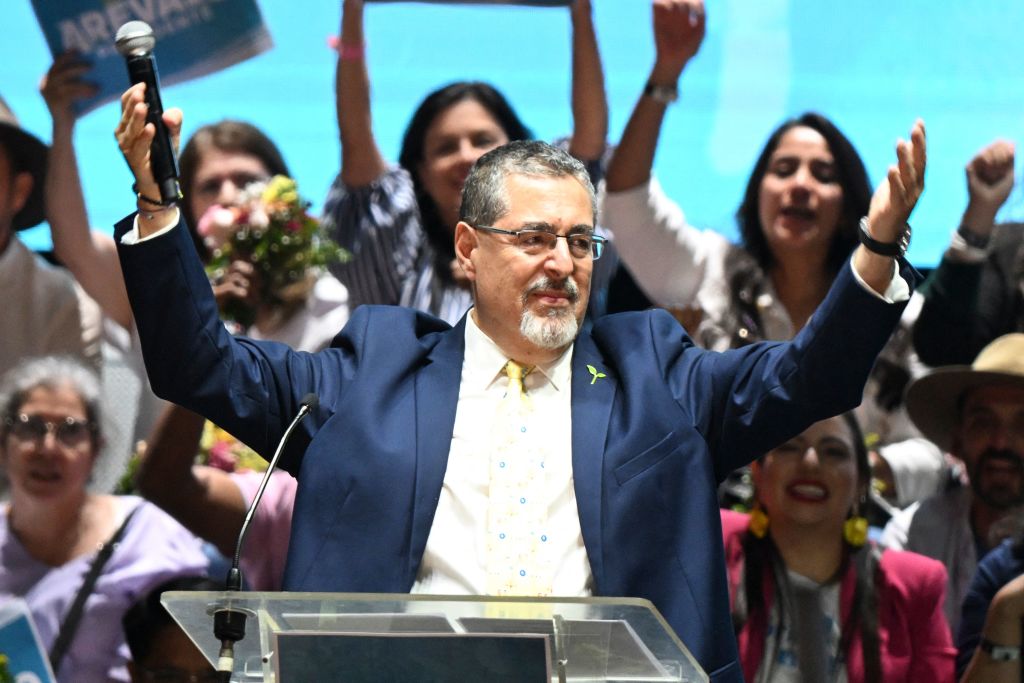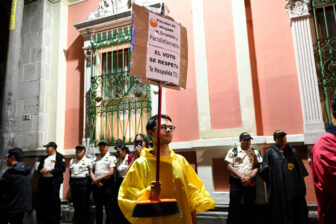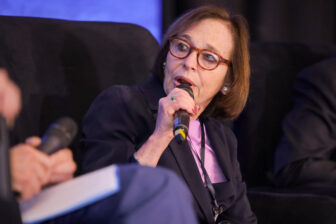Bernardo Arévalo of the center-left Movimiento Semilla party soundly defeated former First Lady Sandra Torres in Sunday’s presidential runoff, by a margin of 58% to 37%. Arévalo—an academic, former diplomat and son of a famed revolutionary president—campaigned as an outsider willing to combat corruption with moderate but meaningful reforms.
Endemic corruption and widespread poverty were top of mind for voters. Torres has signaled that she will challenge the results, and Arévalo has warned that criminal groups may try to prevent him from assuming the presidency in January.
AQ asked analysts to share their reaction.
Claudia Méndez, investigative reporter at ConCriterio
Bernardo Arévalo’s victory confirmed what the first-round election showed: The ruling class could not prevent voters from changing the political dynamic of this country. The anti-corruption narrative was the key to victory. Former President Jimmy Morales (2016-20) shuttered the International Commission Against Impunity in Guatemala (CICIG) in 2019 even though seven of ten Guatemalans backed the commission, whose investigations revealed massive corruption networks. In 2015, because of CICIG investigations, former President Otto Pérez Molina was forced to step down and then sent to prison. Arévalo and Semilla promised to continue that legacy.
The defeat was not of Sandra Torres and her UNE party alone. Instead, it was a defeat of an alliance that was consolidated under current President Alejandro Giammattei. Political parties backed by wealthy elites and organized crime coopted state institutions and weakened the justice system as far-right groups became more powerful. They put Consuelo Porras in charge of the Public Ministry as attorney general, and her actions were so brazen that she was sanctioned by the U.S. for participating in corruption and undermining democracy. The clearest indicators of the democratic backsliding underway were the dozens of justice operators and journalists who had been forced to leave Guatemala for Costa Rica, Mexico and the U.S.
The path forward, however, will be long and hard. Even Arévalo’s first-round victory was almost revoked by Public Ministry probes that sought to disqualify him and the Semilla party. His candidacy survived due to the efforts of the weakened Supreme Elections Tribunal, of other compromised high courts under international pressure, and of citizens who went to polling places in the first and second rounds to monitor the vote.
The eight weeks between the first and second rounds were beset by threats. And yet, they barely hint at the enormous opposition that Arévalo and Semilla will face—if they are indeed permitted to take office. They will face opposition from an array of political parties, a majority in Congress, and several key compromised institutions. In other words, more than political opposition, they will face opposition from an entire governing system.
Irma A. Velásquez Nimatuj, Ph.D, journalist and social anthropologist
The victory of Bernardo Arévalo and his vice presidential candidate Karin Herrera is historic. It is a sign of relief for Guatemala, which boasts Central America’s largest economy yet is beset by some of the worst poverty indicators in the Americas. The current administration and the last set about not only to dismantle the justice system and coopt state institutions, but also to deploy more violence and criminalization against human rights defenders, especially those who work for women’s and Indigenous rights.
Yesterday’s victory shows a silent but strategically significant realignment of the electorate, which demonstrated that it will no longer be led astray by base clientelist politics. Instead, voters rejected the traditional politics that have led to today’s profound inequalities, for which migration to the U.S. has been a critical escape valve.
Despite the joy felt by many voters today, it must be recognized that Semilla will confront major obstacles. First, a coopted justice system will likely do everything it can to prevent Arévalo from actually assuming the presidency. Organized criminal networks with many millions of dollars at their disposal will not be defeated quietly. It also remains to be seen whether certain economic elites involved in corruption will begin to side with change or try to maintain their illicit activities.
Now, the key difference is that all of Guatemala’s ethnic groups are ready to defend their votes. One of Arévalo’s critical challenges will be whether he can put Indigenous peoples at the center of his reforms to create a true alternative to the inequality that structural racism has subjected them to.
Marielos Chang, political science professor at the Universidad del Valle de Guatemala
Today, all eyes are on Guatemala, because the country managed somehow to escape the path of authoritarianism in one of the most poetic possible ways: through an electoral revolution. Bernardo Arévalo won by a landslide against Sandra Torres and an entire political system that had everything in place to win, except the votes.
Arévalo’s victory cannot be attributed solely to his electoral campaign. The attacks launched by the Public Ministry on his and other candidacies ended up reinforcing the powerful idea that these elections were not normal, and that it was crucial for Guatemalans to fight for the future of democracy at the polls.
Confronted with this critical situation, citizens responded. Thousands of young people signed up as election volunteers to monitor voting centers, and on social media others fought attempts to undermine confidence in the elections. Arévalo’s win feels like a victory of citizens over a system that sought to steal the elections. This explains why, at the celebrations playing out in the streets, the flag of Guatemala—not the flag of Semilla or any other party—is everywhere.
Still, the battle for democracy is far from over. It is not even a given that the peaceful transfer of power will take place. The weeks ahead will be critical.







